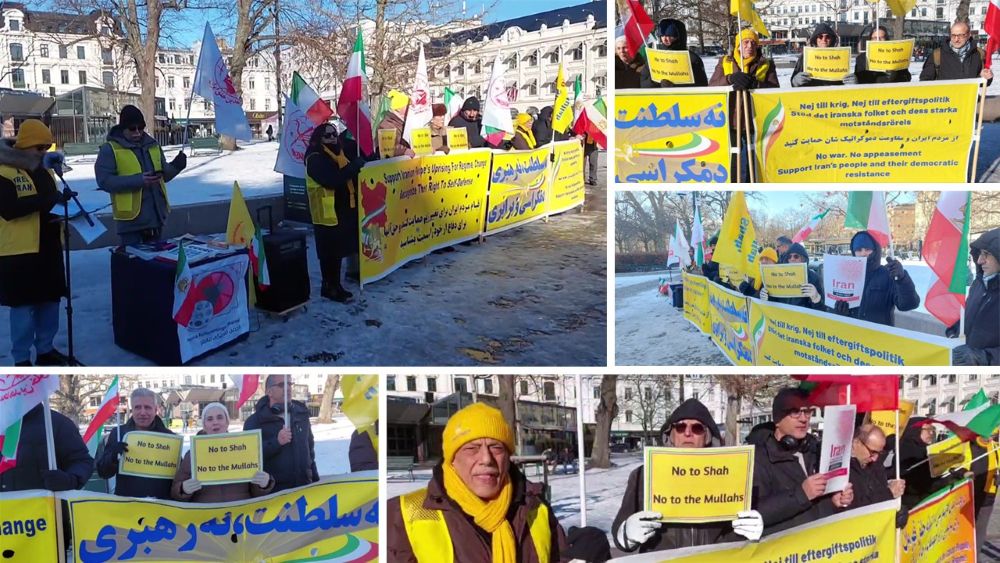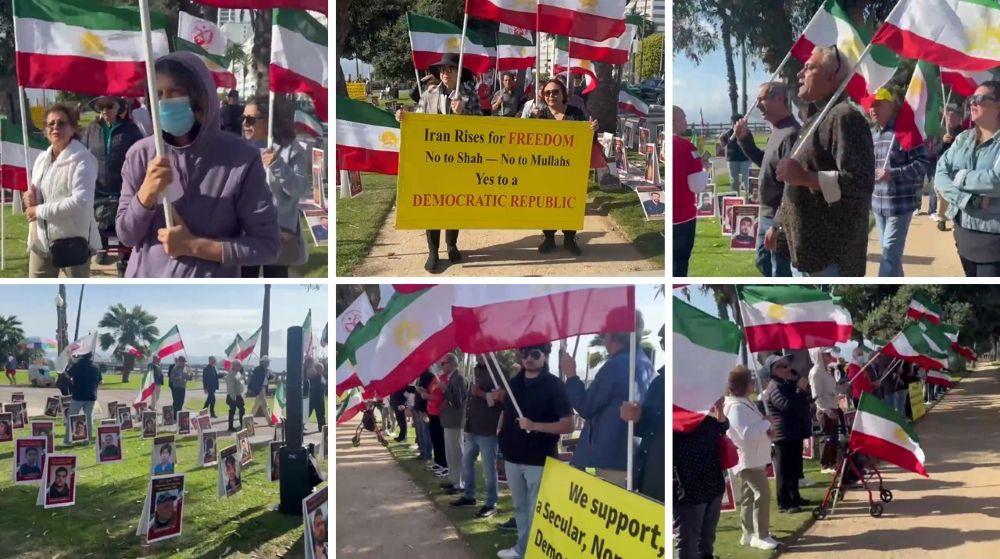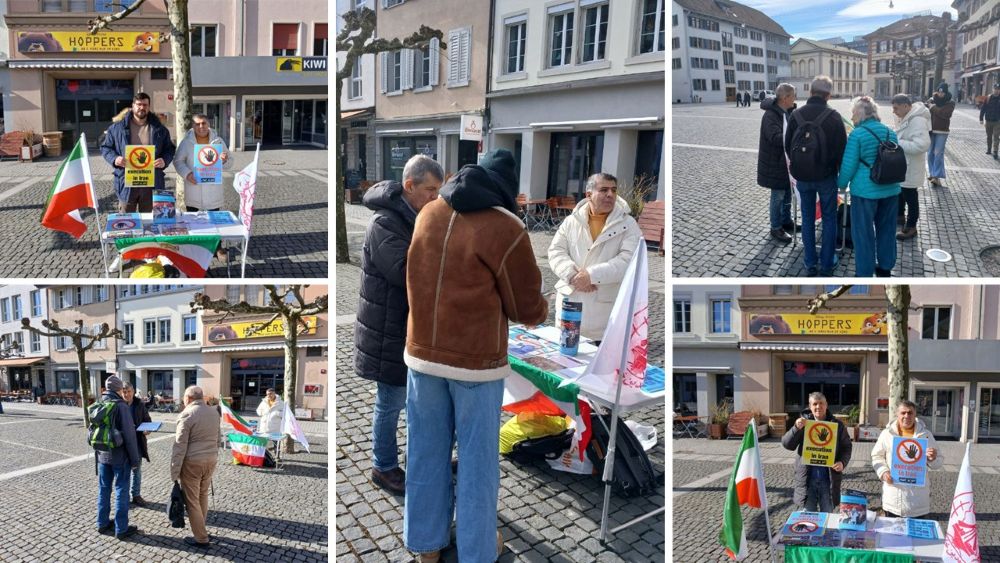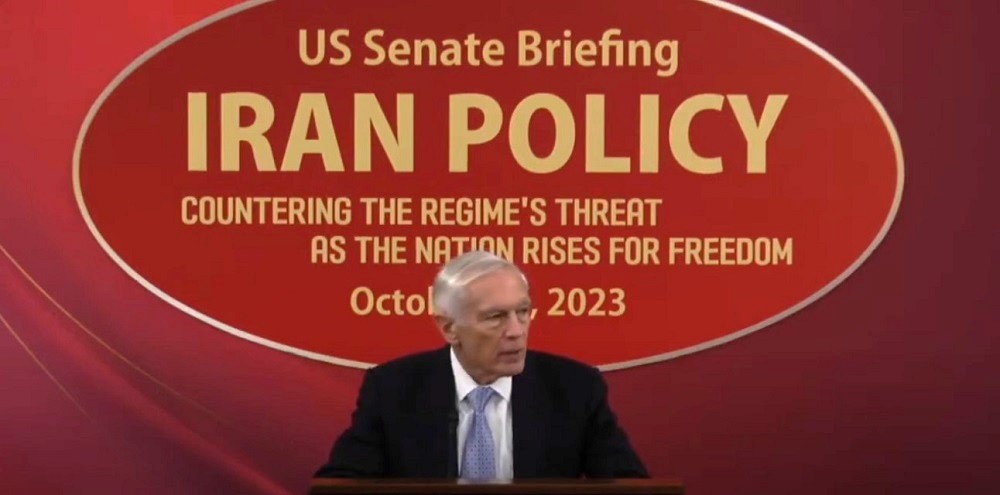
Senate Briefing: Iran Policy Countering Regime’s Threat as Iranians Quest for Freedom
Retired General Wesley Clark, the former Supreme Allied Commander of US forces in Europe, spoke out against the terrorist regime in Iran at a Senate briefing in Washington, D.C., held on October 16. He strongly highlighted the regime’s role in fueling regional instability and backing terrorist activities.
General Clark raised doubts about the legitimacy of the Iranian regime, citing its history of repression, corruption, and aggression. He challenged existing doctrines that oppose substantial change in Tehran and urged for an alternative approach to the status quo in the Middle East, advocating for a shift in the Iranian government.
Regarding alternatives, General Clark acknowledged the National Council of Resistance of Iran (NCRI) as a viable option. He urged the international community to challenge the regime’s legitimacy and actively support the Iranian people in determining their own governance.
General Wesley Clark: There Is an Alternative to the War Iran’s Regime Is Seeking in the Middle East
The full text of General Wesley Clark’s speech follows:
Ladies and gentlemen, thank you very much for the honor of being here, and the honor to stand in a group that is courageous, committed, and determined to end this regime in Iran. This is the time for regime change in Iran. It’s as simple as that.
In the region, fighting is surging. Innocents are being wounded and killed. In Syria, Iraq, South Lebanon, the West Bank, Gaza, and Israel, weapons are pouring into the region.
Forces are mobilizing. People are fleeing. Will it be a massive ground assault into Gaza, with tens of thousands killed or wounded? Will it be a massive bombardment from South Lebanon and Syria into Israel, attempting to overwhelm defenses, and wreaking widespread destruction?
Will it become an attempted war of annihilation against Israel? Will it be a region-wide spasm of violence that reaches into Iran? No one can know at this point. But what we do know is that behind all of this is the evil hand of the Ayatollahs in Iran, the Quds Force. They’re the source of manipulation, terror, war, instability, fear, and inhumanity.
For over 40 years, the people of Iran have suffered brutal repression as the clerics in Tehran have had their way. The mullahs have created a regime founded on corruption, oppression, and murder. The aspirations of the Iranian people for real democracy, freedom, and self-government have been repeatedly and violently crushed.
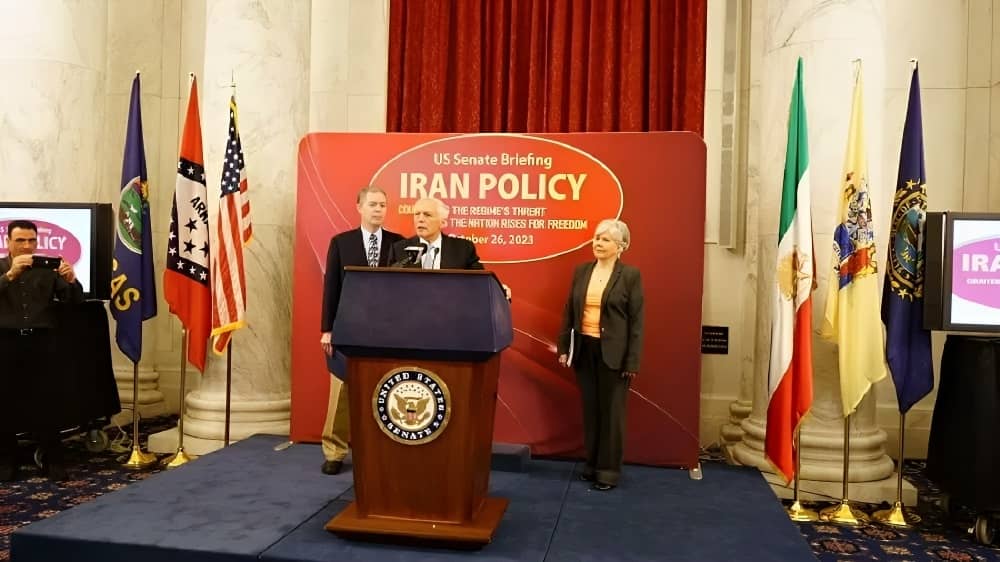
The mullahs have further cemented their power by pursuing a relentless campaign of global terror and aggression by proxy in Lebanon, in Yemen, and now in Israel.
As a state, they’ve committed the Iranian people. The Iranian people are one of the great civilizations of human history. The Iranian people, a historic civilization. They’ve committed these people to the ruthless aim of eradicating a neighboring state, the state of Israel, regardless of the costs. How could they do this? Enough is enough.
Since 1979, successive U.S. administrations have tried to deal with the Ayatollahs in Iran, mostly to no avail. These decades have been marked by Iranian terrorist bombings, assassinations, mischief in the Gulf, support of a brutal dictator in Syria in a civil war that’s resulted in an enormous humanitarian tragedy, and a takeover and, in essence, destruction of the state of Lebanon.
All along, Iran has strengthened its military capabilities, built long-range rockets, and moved steadily toward the development of nuclear weapons.
Even with the promise of sanctions relief, with a return to the JCPOA, Iran has never relented in its hegemonic aspirations, and now training, supporting, and apparently coordinating with Hamas in the terrorist attacks on Israel on the 7th of October, and following up by proxy attacks on U.S. forces in Iraq and Syria. Enough is enough!
Now this regime apparently will not relent. It will not allow the expression of free will of the Iranian people at the ballot box. It will not observe the conventional rules and norms of international behavior in the 21st century. What can be done? Must it inevitably lead to regional warfare? Is that where we’re heading?
Casualties, wrecking decades of economic and social development, global economic commercial dislocation, or do we simply abandon a rules-based international order and let the terrorists of Iran set the pace for the 21st century?
There has to be an alternative to regional war and an alternative to this terrorist regime in Iran. So let’s ask this question: What makes this regime in Iran the legitimate representative of the Iranian people? What gives it its legitimacy?
Is it the consent of the governed? Well, then that legitimacy should be in question, because a government that has the support of its people doesn’t need to rule by force, by repression, by the murder of innocents, by crushing peaceful demonstrations. So it must not be by the consent of the governed.
If it’s a method by which this regime came to pass, well surely that legitimacy must be in question also, because I remember the transition from the Shah, and it was meant to be a democratic, free Iran, not a corrupt, theocratic dictatorship.
Well is that legitimacy then, is it justified by the good works and neighborly relations with its region and globally? Absolutely not. Surely there are deep questions about the Ayatollah’s legitimacy, given Iran’s sponsorship of murder, terrorism, and aggression.
Ladies and gentlemen, in a world of 8 billion people facing climate change, pandemics, and financial, and economic shocks, is there a place for a nation whose stated purpose, year after year, decade after decade, is to destroy a neighboring state and murder millions of innocents?
Should such a leadership be accorded international legitimacy? I think the answer to all this is no. So not by the method of its transformation into a theocratic dictatorship, not by the free consent of its people, not by its good works, not by its stated goal and national purpose, none of these attributes confer legitimacy on the Ayatollah’s regime in Iran.
Yes, they do control the production of oil and gas. They have formidable weapons. They threaten their neighbors. They have strategic relationships with some of the world’s troublemakers. They have a seat at the United Nations. But this cannot be a legitimate government. It cannot be. And it should not be accorded that recognition.
I think in the 21st century, there has to be an alternative to a war against this government that this government, Iran, seems to be seeking. There has to be. And that alternative has to be to listen to the people of Iran and give them the voice to shape their own government. But that cannot be done if those on the outside still treat this government in Iran as the legitimate representative of the Iranian people.
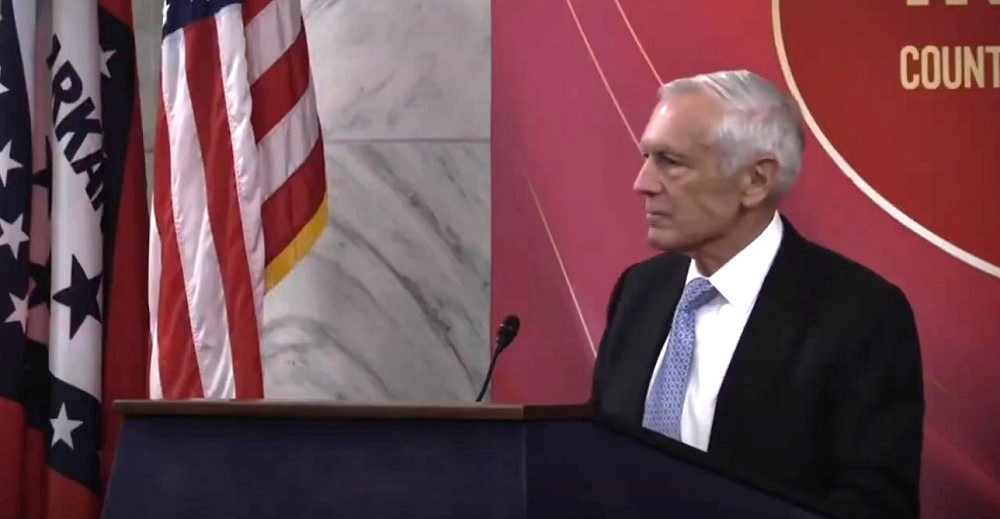
It’s time for the West, Iran’s neighbors and the world community to look for and support other leadership for the Iranian people, to find and support that alternative representation, to look to ordinary people, to those with the courage to protest in schools and in the streets, and to look to this organization that has helped and supported these legitimate expressions of the Iranian people for decades.
I’ve watched the courage, commitment, the incredible durability, and sustainment of this organization. I’ve gone through Ashraf 3. I’ve met the people who’ve been tortured by this regime.
Surely, the world community must come together and recognize there is an alternative to the Ayatollahs. And that alternative shouldn’t be sought in a war of conflict. No, this is the organization that’s persisted for decades, standing up for the rights of the Iranian people. Its program calls for democratic governance, freedom of religion, respect for human rights, and political rights.
It has intimate knowledge, gained over decades of the conditions inside Iran, and the needs of the people in Iran, and it knows how to improve their conditions morally, politically, legally, and economically.
Is it a political and moral force in current Iran? Absolutely. It’s the highest priority target of the Iranian regime. Could it become a transitional government if the current government collapsed? Most definitely. It has communications and representation almost everywhere inside Iran already.
It has a well-thought-out program and an aim to do better for the people of Iran and to bring Iran into a constructive partnership with other nations in the region and globally.
So why not? What does it take to move forward? Only this: To recognize that the government of the Ayatollahs is illegitimate and to act on that, to act on it in every international forum, to bring legal challenges, political challenges, demonstrations, and the expressions of the Iranian people inside Iran to the world for the world to make that judgment.
You know, when you’re dealing with Iran, it’s always a challenge. If things seem to be going smoothly on the surface, nations say, well, let’s not rock the boat. It’s, you know, everything’s okay for right now. And then when there’s a crisis, people say, well, let’s not rock the boat and make it any worse.
Well, there’s a crisis right now. It’s time to go to the source!
Let’s take away their legitimacy. Then the people of Iran will get the government that they seek and deserve.
Thank you.

